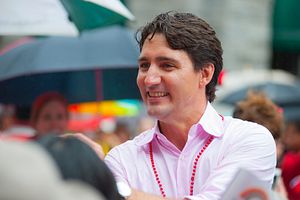To what extent is Canada recalibrating its strategic thinking towards the Asia-Pacific (APAC)?
Although Canada has enjoyed territory on both oceans since independence, Ottawa has historically concentrated the greatest attention on the Atlantic. Even in World War II, when the United States and the United Kingdom waged war across both oceans, Canada focused its contribution heavily on the European theater of operations. Yet with the United States shifting its military and diplomatic attention to the Pacific Rim, Canada may need to rethink how it distributes attention between the two oceans.
Canada faces two key problems in the APAC. First, its navy and air force lack the reach to operate successfully in a region characterized by large distances and small numbers of bases. No Canadian government has displayed much interest in paying for the naval capabilities (nuclear submarines, light carriers or amphibious assault ships) that could enable this reach. As Bochen Han has pointed out, while Canadian trade with Asia has expanded considerably, relations with the continent have yet to play a large role in the Canadian political imagination.
Second, the Asia-Pacific lacks the densely institutionalized security relationships that Canada depends on for access and influence. While the extent of Canadian contribution to NATO operations varies considerably, the ability to contribute at all means that Canada gets a seat at the table regarding the conduct of interventions and the strategic direction of the alliance. Canada has no such seat in the APAC; it has good relations with individual players (particularly the US), but no multilateral security venue for establishing a voice.
Elinor Sloan’s new article in the International Journal discusses these issues at some length (see also an excellent summary/response to the article by David A. Beitelman). Sloan explores whether Canada will develop its military capabilities to the extent that it can have a voice in the development of a strategic architecture of the APAC, or whether it will need to rely on its economic and diplomatic heft to play an “honest broker” role.
Some of the strategic questions are clear; how closely does Canada wish to cleave to the United States, how does it want to approach the arctic, and how does it plan to replace or refurbish aging equipment. Even these questions, however, can lead to difficult debates over the operationalization of strategy.
The cancellation of the F-35 Joint Strike Fighter is emblematic of this dilemma. The F-35 is absurdly expensive, and it’s not obvious that Canadian national defense requires the aircraft. Indeed, the kind of operations that Canada has engaged in over the past three decades have not required a stealth aircraft, and it’s difficult to envision future ops in which Canada would need to “kick in the door” of an anti-access/area denial system.
But… the threat to cancel the F-35 potentially opens up a military gulf with the United States, in terms of both commitment and interoperability. And while the Trudeau government has suggested that the money saved by cancelling the F-35 will be redistributed to the Royal Canadian Navy, Canada’s ongoing reluctance to spend money on independent expeditionary capabilities remains a huge problem. The RCAF will need a new fighter of some sort, in any case.
Thus far, the Trudeau government has not given strong inclinations as to the direction of its strategic thought. The most visible initiatives (the aforementioned cancellation of the F-35, and the curtailment of Canadian participation in the anti-ISIS coalition) feel like knee-jerk reactions against the policies of the Harper government. Trudeau has the opportunity, however, to carry out a major redirection of Canadian foreign and defense policy.

































